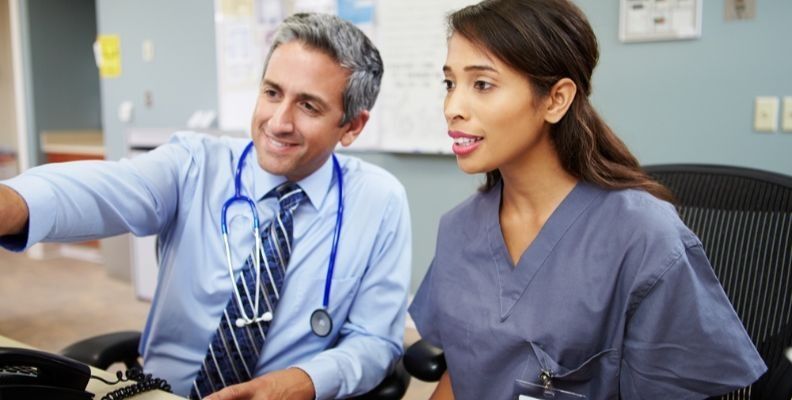What Do Public Health Nurses Do?
By Chris O’Brien
Chris O’Brien received her BSN from Auburn University and her Master’s in Public Health degree from Emory University. With a background in cardiac care, home health, nursing research & education, and medical writing, she now enjoys the dual paths of being a freelance medical writer and yoga teacher in Decatur, GA.
According to the American Public Health Association, “public health nurses integrate community involvement and knowledge about an entire population or community with personal, clinical understandings of the health and illness experiences of individuals and families within that population.” In other words, they maintain a connection with a particular community and use their nursing skills to promote health and prevent diseases of all sorts.

Where do public health nurses work?
Public health nurses work just about anywhere. They may work as part of a local, state, or national public health service in clinical or administrative roles. For example, they could be involved with a local or state health department or in the area of environmental health, in disaster relief. Others work in the political arena as consultants or lobbyists. Still others pursue and obtain grants to fund and maintain much-need grassroots health programs.
What do public health nurses do?
For many, the first encounter with a public health nurse occurs when receiving immunizations or screenings at a local health department. These procedures may seem routine, but in essence, the nurses are collecting patient data and providing preventive services to the community they are serving. But, public health nurses do much more than provide vaccinations; their main focus is preventing infectious diseases. Even diseases that have been eradicated in this country can return if public health efforts fall short. A current example of this is tuberculosis, which has rebounded in recent years.
Public health nurses can also work within specific communities. For instance, some nurses may be devoted to helping refugees. Before any health care can be provided in these cases, communication barriers must be overcome and trust has to be developed.
A focus on prevention
Public health nursing starts with building relationships-beginning with one individual or family. The impact on the overall community is difficult to measure because the effects are so far-reaching. When a person’s basic needs are met he or she is more likely to behave in ways that will promote his or her overall health.
Public health nurses take on responsibilities that include helping with immunizations and working specifically with underprivileged communities. For example, in Georgia, a set of nurse educators takes students to Moultrie where they work for several weeks with migrant farm workers.
Students and professionals alike create temporary clinics to provide health care to these workers. Many have chronic conditions that have gone untreated; the clinics help them secure treatment and in turn, continue to work, harvesting fruits and vegetables for the general population. The nurses there also provide health education, making sure that if a worker does get sick he or she knows how to care for him or herself and not spread the infection. An effective public health nurse doesn’t just consider the individual, but also the community.
Useful Resources
- American Association of Public Health (Public Health Nurse Section)
- Transcultural Nursing Society
- Public Health Employment Connection
- Center for Disease Control and Prevention Public Health Image Library
- Partners in Information Access for the Public Health Workforce
- Center for Disease Control and Prevention Public Health Ethics
- Global Health.gov
- MedScape Public Health and Prevention
- United States Public Health Service Commissioned Corps




